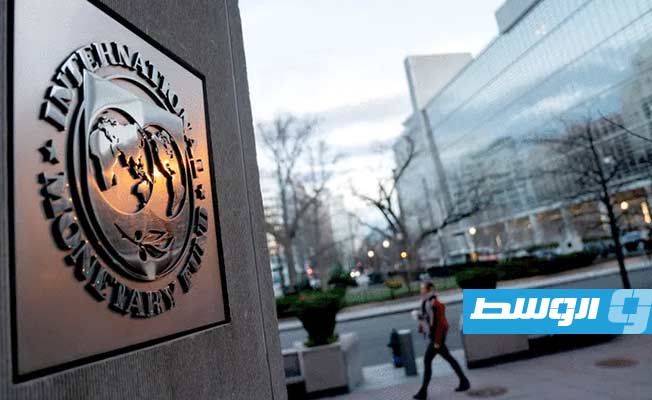- Mon May 20, 2024|
 Alwasat FM|
Alwasat FM|

The International Monetary Fund (IMF) announced the resumption of its surveillance activities in Libya, after "a decade-long hiatus."
As part of its first economic health check in a decade, the IMF identified key strengths and opportunities that will support Libya’s recovery. It added that the Central Bank of Libya has maintained a "large stock of international reserves, supported by a fixed exchange rate, capital controls, and various temporary arrangements." Noting that this "played an important role in helping the country overcome the exceptional swings in oil production and revenues that occurred post-revolution."
The organization pointed out that with "vast oil and gas reserves, Libya has one of the highest GDP per capita levels in Africa."
"Hydrocarbon production will continue to be a critical part of Libya’s economic future, making up around 95 percent of exports and government revenue. We project that it will grow by about 15 percent in 2023, following an increase in activity after an oil blockade limited production in 2022. However, the key challenge will be to diversify away from oil and gas while fostering stronger and more inclusive private sector growth."
The report noted that "Libya needs an economic strategy that clearly articulates a way forward for the nation. This would be an opportunity to rally the public behind a plan that optimizes the use of oil revenue to diversify the economy and break away from the Ghaddafi-era policies that fostered rent-seeking behavior, corruption, and government opacity."
It concluded "Libya urgently needs a transparent budget that reduces costs associated with high spending on public sector wages and subsidies. Government spending is dominated by public sector salaries, with around 2.2 million people—one-third of the population—notionally employed by the public sector. Subsidies and grants amount to around one-quarter of spending and fuel subsidies are particularly problematic, with the domestic price of gasoline at US 3 cents per liter, the second lowest in the world. "
With the resumption of IMF surveillance in Libya, the organization said that it will "continue to provide policy advice and support to help strengthen the economy and prepare for post-conflict rebuilding."
Comments